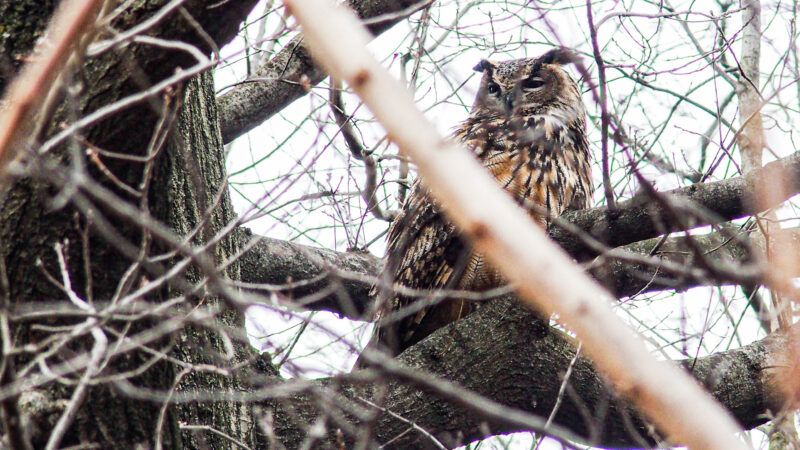Flaco, New York City's Escaped Owl, Is a Flying Free-Range Metaphor
In just two weeks, he has learned to hunt and survive. There's a lesson there.

Meet Flaco, the Free-Range Kid who happens to be an owl.
Flaco, a 13-year-old Eurasian eagle-owl, has spent almost his entire life in the Central Park Zoo, where he was pampered, loved, and enriched. Earlier this year, on the night of February 2, someone (not me) cut a hole in his wire mesh cage. Flaco was free.
His helicopter parents—er, zookeepers—desperately tried to make him come home. They baited traps. They played Eurasian eagle-owl sounds. They did everything but promise him a trip to Disneyland. The work seemed essential, because the authorities didn't believe their beloved bird could survive without adult supervision.
"Every meal he takes is a bit of a risk," fretted ornithologist Scott Weidensaul. "Why risk his life out there with this game of Russian roulette?"
Why indeed? Because Flaco was born to fly.
While at first he could only make it about four blocks before tuckering out, soon observers saw him flying further and further afield.
And while there was great concern that he wouldn't know the first thing about how to catch his own food, just days into his freedom he was coughing up tangles of rodent fur and bones—the parts that owls can't digest. This meant he was successfully hunting.
It turns out all that Flaco needed to prove himself was an opening—literally. And now he's a Free-Range Bird, beloved by his city.
Is there a lesson for the rest of us? I spend my days trying to convince zookeepers—er, parents, teachers, counselors, and coaches—that 24/7 supervision of children is unhealthy for them. Love and attention are important ingredients for kids, but constant hovering over them can stunt their growth.
We all know this from our own childhoods: We learned by climbing trees, getting lost, solving problems, and making friends.
Kids possess all sorts of skills, but they require unsupervised, unstructured time to discover them. Free time in childhood is not a luxury. It's not wasted. It's not fallow. It's crucial for child development.
On February 16, the zoo stopped trying to catch Flaco. In just two weeks, he had learned how to battle the elements and dazzle New York City. He stunned those who loved him dearly but had underestimated him all those years.
If we want our kids to dazzle us with their abilities and ebullience, we, too, have to remember they come pre-programmed to explore and figure things out. Our job is to love them, hug them, open the cage, and watch them soar.


Show Comments (28)